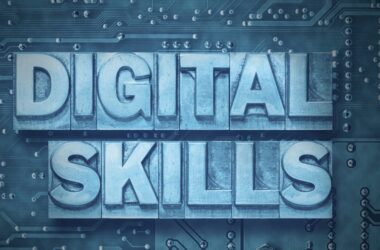The age-old “degree versus certificate” debate roars on in today’s job market, but is it time to waltz away from the binary? The truth is that both hold distinct weights, and the optimal step depends on a more intricate choreography of your unique goals, learning style, and career aspirations. Let’s break free from the rigid boxes and explore how degrees and certificates can co-create a symphony of success, not competition.
Let’s delve into the merits of both options and help you make an informed decision.

The Power of Degrees
A degree, particularly from a reputable institution, offers a wealth of advantages that can significantly impact your career trajectory. These benefits encompass a broader knowledge base, enhanced credibility, and valuable networking opportunities.
Broader Knowledge Base
A degree program delves into the intricacies of your chosen field. It is providing a comprehensive understanding of its theoretical underpinnings, practical applications, and related disciplines. This holistic approach instills versatility in adapting to evolving industry trends and exploring diverse career opportunities. It enables you to grasp the broader context of your profession, fostering adaptability and enabling you to navigate complex challenges.
Enhanced Credibility
A degree holds universal recognition as a testament to academic excellence. It instantly enhances your resume and opens doors to prestigious companies. It serves as a tangible emblem of your commitment to lifelong learning, intellectual curiosity, and the ability to persevere through rigorous academic challenges. Employers value individuals with degrees, perceiving them as possessing a strong foundation of knowledge and the ability to handle demanding tasks.
Valuable Networking Opportunities
Universities are vibrant hubs for cultivating valuable connections with peers, professors, and alumni. These interactions can blossom into mentoring relationships, collaborative ventures, and even future job opportunities. Your network of connections can serve as a powerful tool for navigating the professional landscape, providing insights, support, and potential pathways to career advancement.
In essence, a degree offers a multifaceted advantage, arming you with a broader perspective, enhancing your credibility, and providing access to a rich network of connections. These benefits can significantly propel your career growth and open doors to promising opportunities.

The Allure of Certifications
While degrees undoubtedly carry considerable weight, certifications possess a unique allure that complements their traditional counterparts. These benefits include targeted skill development, accelerated timelines, and practical skill validation.
Targeted Skill Development
Certifications hone specific, in-demand skills relevant to a particular industry or job role. This laser-focused approach equips individuals with highly sought-after expertise, making them more attractive to potential employers. By focusing on niche skills, certifications fill the gaps that may not be comprehensively covered in traditional degree programs, providing an edge in competitive job markets.
Accelerated Career Advancement
The path to acquiring certifications is generally shorter and more affordable than pursuing a degree, typically taking months rather than years. This accelerated process allows individuals to gain specialized skills, enter the workforce or advance their careers more quickly. The lower cost of certifications makes them an attractive option for those seeking to enhance their qualifications without incurring significant financial strain.
Practical Skill Validation
Certifications go beyond theoretical knowledge by providing a rigorous assessment of real-world skills through exams and practical evaluations. This hands-on approach is particularly valuable in fields where practical application surpasses theoretical knowledge. By demonstrating their ability to apply skills in a real-world setting, individuals with certifications showcase their practical competence and immediate value to employers.
In essence, certifications offer a compelling alternative to traditional degrees, providing a focused pathway to acquire specialized skills, accelerate career progression, and validate practical expertise. This combination of targeted focus, accelerated timelines, and practical validation makes certifications a valuable asset in today’s dynamic job market.
So, which path is right for you?
In the dynamic realm of professional growth, the question of whether to pursue a degree or a certification often arises. While the traditional degree remains a cornerstone of career advancement, certifications have emerged as a compelling alternative, offering a more focused and streamlined approach to acquiring specialized skills.
Deciphering the Degrees Advantage
A degree, particularly from a reputable institution, holds inherent value, bestowing a breadth of benefits that can significantly impact your career trajectory. These advantages encompass a comprehensive knowledge base, enhanced credibility, and valuable networking opportunities.
Comprehensive Knowledge Base
A degree program delves into the intricacies of your chosen field, providing a profound understanding of its theoretical underpinnings, practical applications, and related disciplines. This holistic approach instills versatility in adapting to evolving industry trends and exploring diverse career opportunities. It enables you to grasp the broader context of your profession, fostering adaptability and enabling you to navigate complex challenges.

Enhanced Credibility
A degree holds universal recognition as a testament to academic excellence, instantly enhancing your resume and opening doors to prestigious companies. It serves as a tangible emblem of your commitment to lifelong learning, intellectual curiosity, and the ability to persevere through rigorous academic challenges. Employers value individuals with degrees, perceiving them as possessing a strong foundation of knowledge and the ability to handle demanding tasks.
Valuable Networking Opportunities
Universities are vibrant hubs for cultivating valuable connections with peers, professors, and alumni. These interactions can blossom into mentoring relationships, collaborative ventures, and even future job opportunities. Your network of connections can serve as a powerful tool for navigating the professional landscape, providing insights, support, and potential pathways to career advancement.
Unveiling the Allure of Certifications
While degrees undoubtedly carry considerable weight, certifications possess a unique allure that complements their traditional counterparts. These benefits include targeted skill development, accelerated timelines, and practical skill validation.
Targeted Skill Development
Certifications hone specific, in-demand skills relevant to a particular industry or job role. This laser-focused approach equips individuals with highly sought-after expertise, making them more attractive to potential employers. By focusing on niche skills, certifications fill the gaps that may not be comprehensively covered in traditional degree programs, providing an edge in competitive job markets.
Accelerated Career Advancement
The path to acquiring certifications is generally shorter and more affordable than pursuing a degree. It typically takes months rather than years. This accelerated process allows individuals to gain specialized skills, enter the workforce or advance their careers more quickly. The lower cost of certifications makes them an attractive option for those seeking to enhance their qualifications without incurring significant financial strain.
Practical Skill Validation
Certifications go beyond theoretical knowledge by providing a rigorous assessment of real-world skills through exams and practical evaluations. This hands-on approach is particularly valuable in fields where practical application surpasses theoretical knowledge. By demonstrating their ability to apply skills in a real-world setting, individuals with certifications showcase their practical competence and immediate value to employers.
Demystifying the Decision-Making Process
The choice between a degree and a certification is not a one-size-fits-all scenario. The optimal path depends on a confluence of factors that align with your individual goals, learning style, and career aspirations.
Cultivating a Clear Vision
Start by defining your career objectives. What specific role do you aspire to hold? Are there any industry entry requirements or skill sets that are particularly valued by employers? Understanding these elements will help you determine whether a degree or a certification is more suitable for your aspirations.
Aligning with Learning Preferences
Assess your learning style. Do you thrive in a structured academic setting or prefer a more hands-on, project-based approach? Degrees provide a comprehensive overview of a field, while certifications focus on specific skills. Consider your preference for theory or practice when making your decision.
Balancing Time and Resources
Evaluate your time and financial constraints. Pursuing a degree typically involves years of full-time study and significant financial investment. Certifications, on the other hand, can be completed in a shorter timeframe and at a lower cost.
Harnessing the Power of Synergy
The ideal path may not be an exclusive choice between a degree and a certification. Consider combining both approaches to create a well-rounded and dynamic skillset. A degree can provide a foundational understanding. But certifications can add specialized expertise and keep your knowledge relevant in a rapidly evolving job market.
Conclusion: A Journey of Continuous Learning
The decision between a degree and a certification is not a rigid binary; it’s a fluid path that should evolve with your changing goals and aspirations. Embrace the opportunity to learn from both traditional and non-traditional avenues, seeking opportunities to expand your knowledge and enhance your skills. Remember, continuous learning.








